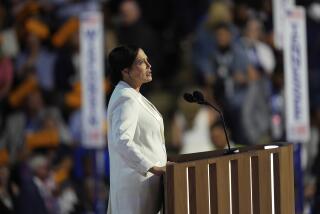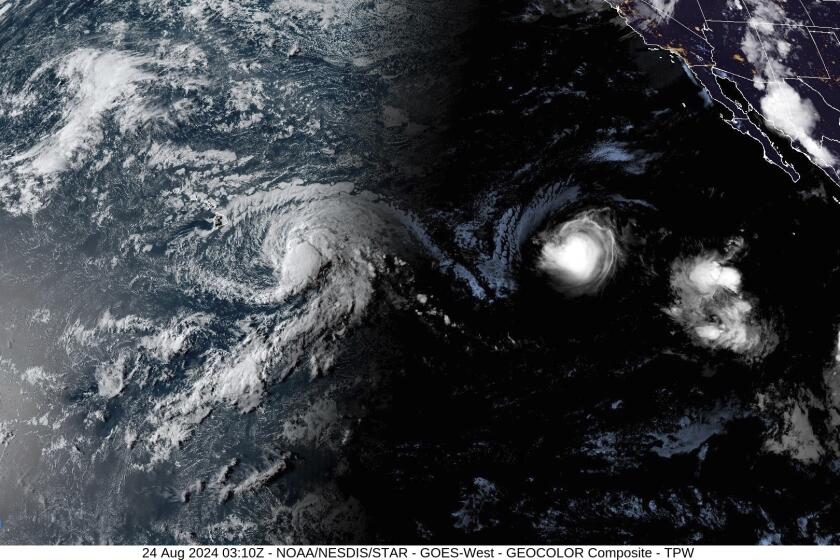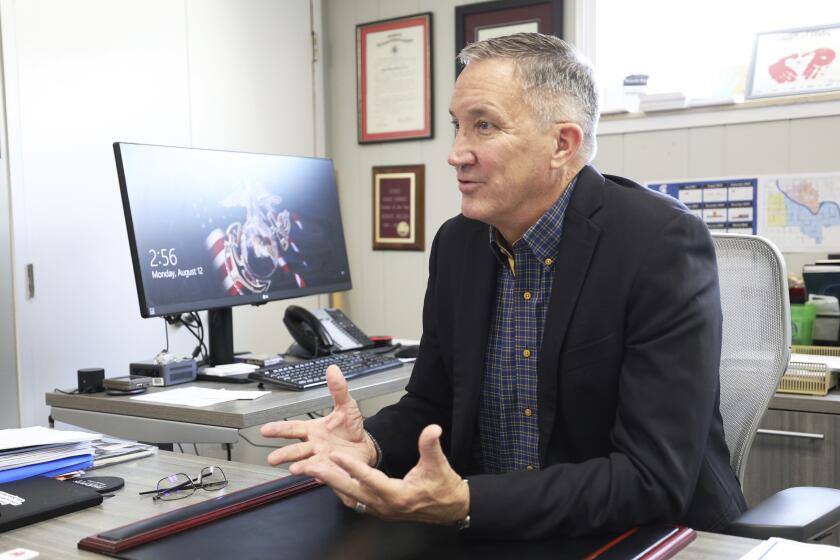CRISIS IN THE CARIBBEAN : Haiti Intervention Still Risky for Troops : Security: Shalikashvili says U.S.-led force will keep peace for months, even if it means resorting to violence.
U.S. troops in any Haiti intervention force will face a long and potentially hazardous job of restoring order to an essentially lawless country and preventing mob justice and revenge killings, top U.S. military officials said Sunday.
Gen. John M. Shalikashvili, chairman of the Joint Chiefs of Staff, said the U.S.-led force hopes to train a new Haitian police force but that for months, at least, it will be the responsibility of U.S. and allied troops to keep the peace, even if that means shooting looters and other lawbreakers.
Interviewed on the NBC-TV program “Meet the Press,” Shalikashvili said the allied troops will prevent Haitian-on-Haitian violence whether it is perpetrated by supporters of democratically elected President Jean-Bertrand Aristide or by rogue government soldiers.
“Certainly early on at least, when (Haitian-on-Haitian violence) threatens to overwhelm the (local) police and thereby create the kind of instability that could destroy the whole effort, then the military forces will intervene,” Shalikashvili said.
Asked if the U.S. forces were prepared to shoot looters, the general responded, “Depending on the act that they are committing, that’s correct.”
The security job makes the intervention very dangerous. It could turn Haiti into a quagmire even with an easy initial entry.
For instance, Sen. John McCain (R-Ariz.), who opposes the intervention in any case, said Sunday on ABC-TV’s “This Week With David Brinkley” that the United States should shun the law-and-order job because “there are more blood feuds in that country than any place outside Sicily.”
Defense Secretary William J. Perry made it clear that the security phase will be more difficult than the original entry.
“The second phase . . . is to establish a security on the island, and that means bringing up a police force,” Perry said. “I think we’re talking about a few months before we can have confidence in the newly established police force, in being able to maintain law and order.”
Under present plans, the U.S.-led intervention force will spend at least several months establishing order in the impoverished island nation before giving way to a U.N. peacekeeping force, which also will be led by U.S. military personnel. The U.N. Security Council authorized a force of about 6,000 troops, probably half of them American, to help maintain order until after the next Haitian presidential election, scheduled for December.
Although both Perry and Shalikashvili expressed hope that a retrained Haitian army and police force will be capable of maintaining order long before the U.N. troops leave the country, they emphasized that the U.N. force will provide backup security as long as they are there.
Shalikashvili said the U.S. force’s “rules of engagement” authorize the use of armed force both for self-protection and to prevent a breakdown in civil order.
He said one danger faced by the U.S. troops will come from Haitian soldiers who throw away their uniforms and melt into the countryside with their weapons. But he conceded that there was also a danger from some of Aristide’s fanatical backers.
In a speech Friday and in earlier radio broadcasts to Haiti, Aristide urged his followers to avoid vengeance. But U.S. officials continue to express concern that at least some of Aristide’s mostly poor supporters will try to even scores after enduring three years of military rule in which many people were killed, maimed and raped.
At the same time, some U.S. officials said there is a clear danger that once Aristide is restored to the presidency, he may be assassinated. Perry said the U.S. force would do everything in its power to prevent that, but he said the effort to restore democracy would go ahead regardless of Aristide’s fate.
“Anything we’re doing to establish democracy in this country cannot depend on one person . . . no matter how much confidence we may have in Aristide,” he said. “Nobody is immortal.”
More to Read
Sign up for Essential California
The most important California stories and recommendations in your inbox every morning.
You may occasionally receive promotional content from the Los Angeles Times.






